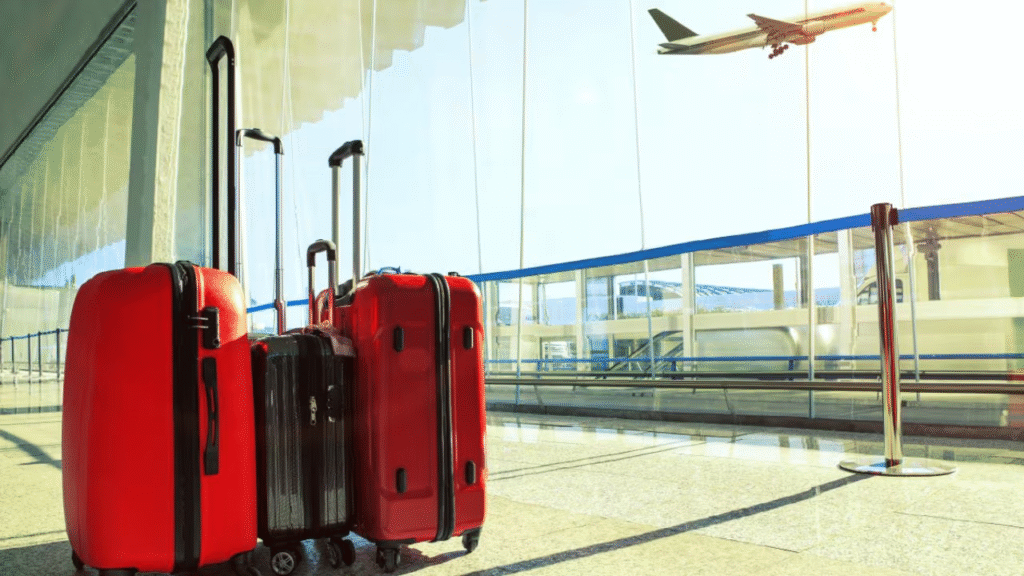Vacations are meant to be relaxing, adventurous, and memorable — but what happens when things go terribly wrong? Imagine your dream trip to Bali disrupted by a canceled flight, a medical emergency in a remote town, or your luggage mysteriously disappearing. While no one plans for disaster, it can strike anytime and anywhere. This is where travel insurance comes in — but can travel insurance truly protect you from vacation disasters?
The short answer is yes — but with caveats. Travel insurance is not a one-size-fits-all solution. It’s a financial safety net that can protect you against the unexpected, from trip cancellations and medical emergencies to lost baggage and even emergency evacuations. Let’s explore how and when it actually delivers, what it covers, what to watch out for, and whether it’s a necessity or an optional luxury in today’s travel climate.
Key Takeaways
- Travel insurance protects against trip cancellations, medical emergencies, delays, and lost belongings.
- Not all policies are created equal; read the fine print and understand exclusions.
- Medical evacuation and international health coverage are among the most critical benefits.
- Cost typically ranges from 4–10% of your trip’s value — a small price for major protection.
- “Cancel for Any Reason” policies offer maximum flexibility but come at a premium.
- Frequent travelers may benefit from annual or multi-trip coverage.
- Peace of mind, especially in an unpredictable world, is the true value of travel insurance.
Understanding Travel Insurance: What Is It?
At its core, travel insurance is a contract that offers financial protection and assistance in case your travel plans go awry. It typically covers:
- Trip cancellation or interruption
- Medical emergencies and evacuation
- Lost, stolen, or delayed baggage
- Travel delays
- Personal liability
Travel insurance can be bought as a comprehensive policy (covering multiple issues), or à la carte, allowing you to pick and choose specific coverages. It is available from travel agencies, airlines, banks, third-party providers, or directly from insurers online.
Real-Life Vacation Disasters Travel Insurance Can Cover
Here are common vacation disasters where travel insurance could save the day:
Trip Cancellation Before Departure
Imagine booking a non-refundable honeymoon to Europe — only to have a family emergency arise days before departure. Without travel insurance, you’re out thousands of dollars. With it, you could receive reimbursement.
Medical Emergencies Abroad
Healthcare abroad can be expensive, and many domestic health policies don’t extend overseas. A broken leg in Thailand or food poisoning in Mexico could cost thousands in out-of-pocket medical bills. Emergency evacuation can cost $20,000 to $100,000 — but travel insurance can cover that.
Lost or Stolen Luggage
Baggage loss is frustrating and expensive. If your suitcase — packed with clothes, electronics, and essentials — goes missing, travel insurance can reimburse you for its value and help you get temporary supplies.
Natural Disasters
If your beach resort in the Caribbean is shut down due to a hurricane or earthquake, your travel insurance may help reimburse non-refundable costs or even cover trip interruption.
Civil Unrest or Terrorism
Unforeseen political unrest or a terrorist attack at your destination could mean canceling your trip. Some policies provide coverage if such events occur within a specific timeframe or location.
What Travel Insurance Typically Covers
A solid policy may include:
- Trip Cancellation/Interruption: Refunds non-refundable expenses if your trip is canceled or cut short due to illness, death, weather, job loss, or other qualifying reasons.
- Medical Coverage: Pays for doctor visits, hospitalization, emergency dental, and sometimes pre-existing conditions (if declared).
- Emergency Evacuation/Repatriation: Covers costs of medical transport or returning your body in case of death.
- Baggage Protection: Compensates for lost, delayed, or damaged bags.
- Flight Delays: Reimburses food/lodging for long delays or missed connections.
- Accidental Death or Dismemberment: Benefits to you or your family in case of serious injury or death.
What Travel Insurance Doesn’t Cover
No policy covers everything. Here are key exclusions:
- Undeclared pre-existing conditions
- High-risk sports unless added as a rider (e.g., skydiving, scuba diving)
- Travel against medical advice
- War zones or destinations with travel advisories
- Mental health emergencies in some cases
- Illegal acts or alcohol-related incidents
- Changing your mind
Reading the fine print is essential. Many disappointed travelers only discover limitations after trying to file a claim.
Types of Travel Insurance Policies

There are several options to fit different travel styles:
Single-Trip Insurance
Best for occasional travelers, this covers one trip only. It’s the most popular type.
Multi-Trip Insurance
Ideal for frequent travelers, this annual policy covers multiple trips (usually up to 30-60 days each).
Medical-Only Travel Insurance
Good for travelers who already have cancellation coverage (e.g., through a credit card).
Cancel for Any Reason
Premium add-on that allows you to cancel for virtually any reason and still get partial reimbursement.
Student or Business Travel Insurance
Tailored for study abroad programs or work travel — may include gear protection or job-related cancellations.
Is Travel Insurance Always Worth It?
Let’s break it down:
When It’s Essential:
- International travel (especially outside your health insurance network)
- Cruises, tours, or remote destinations
- Trips involving large upfront payments
- Senior or health-compromised travelers
- Countries with unstable conditions or poor medical infrastructure
When It May Be Optional:
- Short domestic trips with refundable bookings
- Travel funded through credit cards with strong travel benefits
- Last-minute, low-cost travel
Cost is usually 4–10% of the trip value. A $5,000 vacation may mean a $200–$400 policy. While it adds to the budget, it can save you tens of thousands in an emergency.
How to Choose the Right Travel Insurance
Assess Your Risk: Consider health, destination, activity level, and non-refundable costs.
Compare Plans: Use comparison sites like Squaremouth or InsureMyTrip.
Check Existing Coverage: Some credit cards or employer benefits may already offer protection.
Read the Fine Print: Know what’s covered — and what’s not.
Add Riders If Needed: For extreme sports, CFAR, or high-value gear.
The Role of Credit Cards in Travel Insurance
Premium credit cards (like Chase Sapphire Reserve or AmEx Platinum) often include travel benefits:
- Trip delay reimbursement
- Baggage loss/delay coverage
- Rental car damage waiver
- Emergency assistance
But coverage limits are usually lower than standalone insurance, and medical coverage is rare. Always check your card’s benefits guide.
Claiming Travel Insurance: The Process
Notify your insurer immediately
Keep all documentation (receipts, reports, proof of cancellation)
File a claim with proper paperwork
Follow up until settled
Insurers may reject claims lacking proper documentation, or those falling into exclusions. Be honest and proactive.
Travel Insurance Trends in 2025
- Post-pandemic resurgence: COVID-19 showed how quickly borders can shut and plans can fall apart.
- “Cancel for Any Reason” gaining popularity: As travelers seek more flexibility.
- Digital claims and mobile support: Faster, smoother resolution.
- Adventure travel coverage: Growing demand for niche protection.
- Climate and geopolitical coverage expansions: Responding to real-world events.
Expanded Analysis: The Growing Necessity of Travel Insurance in a Volatile World
In the past, travel insurance was often treated as a luxury or optional extra. Many travelers took the risk, assuming “nothing bad will happen.” But the world has changed. The travel landscape in 2025 is far more complex, risky, and unpredictable than ever before.
Global Uncertainty and Rising Travel Risks
Between pandemics, climate disasters, civil unrest, and airline disruptions, global travel is no longer a stable environment. Consider the following examples:
- In 2023, over 2,500 flights were canceled daily worldwide due to labor shortages and weather disruptions.
- Wildfires in Europe and North America led to massive evacuations of resorts.
- Ongoing conflicts in regions like Ukraine and the Middle East disrupted itineraries and air traffic.
Each of these scenarios triggered millions of dollars in travel losses, and travel insurance was often the only recourse for compensation.
Travelers are now more vulnerable to forces beyond their control, and travel insurance has shifted from a “nice-to-have” to a “must-have”.
A Tale of Two Travelers
Let’s look at a comparative case study that illustrates the difference travel insurance can make.
No Insurance
Alex booked a $6,000 trip to New Zealand with prepaid activities like glacier hiking and whale watching. Two days before departure, Alex slipped on ice and fractured his ankle. Unable to travel, Alex tried to cancel — but all bookings were non-refundable. The airline offered a credit, but everything else — $4,200 — was lost.
Insured
Jamie also booked a $6,000 vacation to Costa Rica with the same prepaid, non-refundable costs. A week before flying out, Jamie’s father was hospitalized unexpectedly. Jamie filed a claim under their trip cancellation benefit, submitted hospital documents, and received 95% of expenses reimbursed within 21 business days.
This side-by-side comparison clearly shows how having or lacking travel insurance can define the outcome of a travel disaster.
Tech and Travel Insurance: The Digital Shift

Modern travel insurance is no longer a pile of paperwork. Many providers now offer digital-first platforms with:
- Mobile apps for instant policy access and emergency help
- Chatbots or hotlines for real-time claims assistance
- Geo-tracking to help locate you or respond to emergencies in remote areas
- Automated claim approvals (in hours, not weeks) for simple issues like flight delays
Companies like SafetyWing, Allianz, and World Nomads are leading the charge in integrating tech into traditional insurance offerings. For digital nomads and remote workers, these enhancements are game-changers.
Travel Insurance and Climate Change: A New Frontier
One of the biggest emerging drivers of travel disruptions is climate change. From flooded airports and hurricanes to wildfires and drought-related closures, weather-related travel disasters are escalating. Travel insurance providers are adapting by:
- Including weather-related cancellations as valid claim causes
- Offering trip interruption due to environmental evacuations
- Providing live weather and climate alerts to policyholders
Still, it’s important to verify if climate-related issues are explicitly covered, especially for destinations prone to natural disasters.
Red Flags: Common Mistakes Travelers Make
Even the best insurance policy can fail if travelers make certain mistakes. Be aware of these red flags:
- Buying too late: Waiting until the last minute might exclude pre-existing condition waivers or CFAR benefits.
- Not declaring pre-existing conditions: Hiding them can invalidate your medical claims.
- Assuming “everything” is covered: Travel insurance is not a catch-all. Read the exclusions carefully.
- Ignoring documentation: Failing to keep receipts, doctor notes, or airline reports can lead to denied claims.
- Buying from unfamiliar or low-rated providers: Not all insurers are reputable or responsive.
To get the most value from your policy, always treat travel insurance as a legal contract — not just a checkbox.
Specialized Travel Insurance: Tailored Protection for Every Type of Traveler
The beauty of today’s travel insurance market is its diversity of options. Whether you’re a solo backpacker, digital nomad, or luxury cruiser, there’s a plan for you.
For Adventure Seekers
Policies can include sports riders covering activities like snowboarding, scuba diving, or bungee jumping. Many policies exclude these by default — so always check.
For Families
Family plans allow you to insure multiple members under one premium — useful if traveling with children or seniors who have higher medical risks.
For Business Travelers
Business-focused policies often cover lost laptops, work documents, or missed client meetings, along with traditional travel protections.
For Cruise Travelers
Cruise insurance covers missed port departures, shipboard medical emergencies, or itinerary changes due to weather or illness outbreaks.
For Students or Remote Workers
Some insurers like SafetyWing now provide monthly travel medical plans ideal for students or digital nomads — with country-to-country flexibility.
The Future of Travel Insurance: What’s Next?
As global travel rebounds and technology continues to evolve, we’re likely to see:
- AI-based claim processing with instant fraud detection
- Blockchain for policy verification and real-time claims
- Dynamic pricing models that adjust based on your itinerary risk profile
- Integrated travel + health + tech insurance for comprehensive coverage
- Global pandemic clauses Standardized across policies
Also Read : Can Pet Insurance Actually Save You Money on Vet Bills?
Conclusion
So, can travel insurance truly protect you from vacation disasters? Absolutely — when chosen wisely, understood clearly, and used correctly. It’s a safeguard that turns what could be a financial catastrophe into a manageable inconvenience.
From medical emergencies to missed flights and lost luggage, travel insurance is often the silent guardian of stress-free travel. In today’s world of unpredictable weather, unstable politics, and global health threats, being unprotected is simply too risky.
While it may not prevent problems, travel insurance can provide peace of mind and practical support — and that alone makes it a valuable investment.
FAQs
1. Does travel insurance cover COVID-19 or future pandemics?
Most insurers now include coverage for COVID-19-related medical expenses and cancellations, but not for fear of travel or government lockdowns. Always check the pandemic clause.
2. What if I already have health insurance — do I still need travel insurance?
Most domestic health policies don’t cover international treatment or medical evacuation. Travel insurance fills that gap.
3. When should I buy travel insurance — at booking or later?
Buy it soon after booking to maximize benefits. Many coverages (like CFAR or pre-existing condition waivers) are only available within 14–21 days of purchase.
4. Is travel insurance mandatory anywhere?
Yes, some countries (e.g., Cuba, Russia, Schengen visa holders) require proof of travel insurance before entry.
5. Can I get travel insurance for a trip that’s already started?
Typically, no. Most policies require purchase before the departure date. Some rare exceptions exist for extended stays.
6. Does travel insurance cover extreme sports or risky activities?
Only if you add a specific adventure-sports rider. Basic policies exclude activities like skiing, scuba diving, or mountain climbing.
7. What’s the difference between travel insurance and trip protection plans from airlines or booking sites?
Trip protection plans often only cover cancellation and delay. Full travel insurance covers medical emergencies, evacuation, and more.



